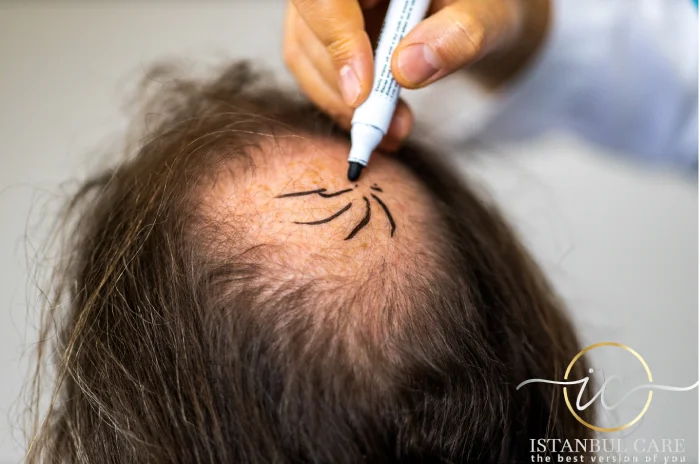Embarking on a hair transplant journey can be a significant decision. Whether you're looking to regain confidence or address a receding hairline, asking the right questions during your consultation is crucial. This blog post will guide you through the essential questions to ask during your hair transplant consultation to ensure you're well-informed and prepared for your procedure.
What Are the Different Hair Transplant Techniques?
Understanding the various hair transplant techniques is fundamental. The two primary methods are Follicular Unit Transplantation (FUT) and Follicular Unit Extraction (FUE). Asking your surgeon to explain these methods, including the pros and cons of each, will help you make an informed decision about which procedure suits your needs best.
Am I a Good Candidate for a Hair Transplant?
Not everyone is an ideal candidate for a hair transplant. Factors such as age, hair type, and the extent of hair loss play a role. During your consultation, your surgeon will assess your hair loss pattern, donor hair quality, and overall health to determine if you’re a suitable candidate.
What Results Can I Expect?
Realistic expectations are key to satisfaction with your hair transplant. Ask your surgeon for before-and-after photos of previous patients with similar hair loss patterns. Understanding the potential outcomes can help you set realistic goals and avoid disappointment.
What Is the Cost of the Procedure?
Hair transplant costs can vary widely based on the technique used, the extent of hair loss, and the surgeon’s expertise. It’s essential to get a detailed breakdown of the costs, including any potential additional expenses. Some clinics offer financing options, so inquire about these if necessary.
How Experienced Are You?
Experience matters significantly in hair transplant surgery. Ask your surgeon about their training, how long they’ve been performing hair transplants, and the number of procedures they’ve completed. Moreover, a well-experienced surgeon can increase the likelihood of achieving your desired results.
What Are the Risks and Potential Complications?
Like any surgical procedure, hair transplants come with risks and potential complications. Inquire about the common risks, such as infection, scarring, and the possibility of unsatisfactory results. Understanding these risks will help you weigh the benefits against the potential downsides.
What Does the Recovery Process Involve?
Post-operative care is crucial for the success of your hair transplant. Ask about the recovery timeline, any activity restrictions, and the follow-up care required. Knowing what to expect during the recovery period will help you plan accordingly and avoid any disruptions to your routine.
Will I Need More Than One Session?
Depending on the extent of your hair loss and your goals, multiple sessions might be necessary. Discuss this possibility with your surgeon to get a clear picture of the overall treatment plan and timeline.
How Long Will It Take to See Results?
Hair growth after a transplant isn’t immediate. Understanding the timeline for initial hair growth and when you can expect to see full results is essential for managing expectations. Most patients begin to see significant growth within six months to a year after the procedure.
Are There Non-Surgical Alternatives?
For some, non-surgical treatments may be a viable option. Ask your surgeon about alternatives like medications (e.g., minoxidil or finasteride) or platelet-rich plasma (PRP) therapy. These options might be suitable for those who are not ready or eligible for surgery.A successful hair transplant begins with a detailed and honest consultation. This is your opportunity to understand the procedure, assess the clinic’s credibility, and determine if you are a good candidate. Asking the right hair transplant consultation questions will help you make an informed decision and avoid unnecessary risks.
1. Am I a Good Candidate for a Hair Transplant?
Not everyone with hair loss is eligible for a transplant. Ask:
- What type of hair loss do I have?
- Is my donor area strong enough?
- Will my age or medical condition affect the outcome?
2. What Technique Do You Recommend and Why?
There are different techniques such as:
- FUE (Follicular Unit Extraction)
- DHI (Direct Hair Implantation)
- FUT (Follicular Unit Transplantation)
Each method has its pros and cons. Ask which one suits your hair type, scalp condition, and desired results.
3. How Many Grafts Will I Need?
The number of grafts determines the coverage and density. Ask:
- How many grafts will be transplanted?
- Will this cover the balding area completely?
- Is more than one session required?
4. What Results Can I Expect?
Set realistic expectations by asking:
- Can I see before and after photos of previous patients?
- When will I see visible hair growth?
- What density can I expect in the treated area?
5. What Is the Total Cost of the Procedure?
Get a clear breakdown of:
- Surgery cost per graft
- Consultation and medication fees
- Post-operative care and follow-up charges
6. Who Will Perform the Surgery?
Confirm the experience and qualifications of the specialist. Ask:
- Is the procedure performed by a licensed surgeon or assistants?
- How many years of experience do they have?
- Are they certified in hair restoration?
7. What Are the Risks or Side Effects?
Understanding the potential downsides is just as important:
- What are the common side effects?
- How do you handle complications like infection or graft failure?
- Is shock loss permanent?
8. What Is the Recovery Process Like?
You should know what to expect after surgery:
- How long is the healing period?
- When can I return to work or exercise?
- What aftercare is required?
9. Will I Need Touch-Up Sessions?
Depending on hair loss progression, you may need sessioni di ritocco del trapianto di capelli (touch-ups). Ask if future sessions might be necessary and what they involve.
10. What Makes Your Clinic a Good Choice?
Ask about the clinic’s:
- Track record and patient satisfaction rate
- Use of modern technology
- Personalized treatment planning
Final Thoughts
Asking detailed hair transplant consultation questions will give you clarity, confidence, and control over your hair restoration journey. Don’t hesitate to request information, credentials, or evidence of success—your results depend on making an informed, safe choice.
We’re ready to answer your questions
Understanding your eligibility is crucial, as factors like age, hair type, and the extent of hair loss influence suitability.
Familiarize yourself with methods like Follicular Unit Transplantation (FUT) and Follicular Unit Extraction (FUE) to determine the most suitable option.
Setting realistic expectations is vital for satisfaction with your hair transplant outcome.
Ensuring your surgeon's expertise can significantly impact the success of the procedure.
Understanding the financial commitment helps in planning and avoiding unexpected costs.
Being aware of possible risks allows for informed decision-making and preparation.Knowing the recovery timeline and necessary aftercare ensures a smooth healing process.
Understanding the potential need for future procedures helps in setting long-term expectations.
Follow us on social media for updates, tips, and patient success stories:


